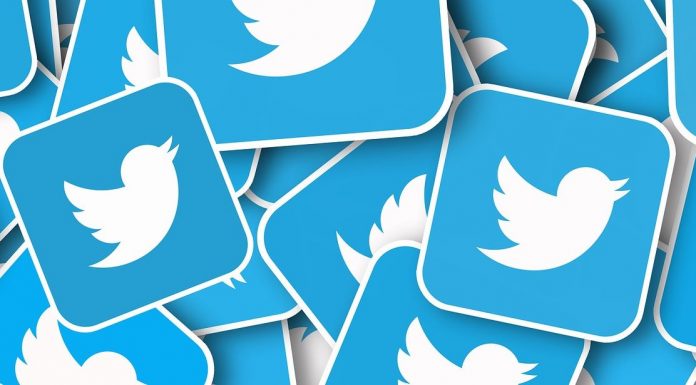(Ryan McMaken, Mises Institute) Last Wednesday’s House Oversight Committee meeting provided some much-needed insight into how corporate personnel at Twitter (before Elon Musk’s takeover) had essentially turned the company into an adjunct of the federal government and its intelligence agencies.
Present to testify were high-ranking company personnel who oversaw Twitter during the covid panic and in the early days of the Hunter Biden laptop controversy. Specifically, they were former employees Yoel Roth, Anika Collier Navaroli, and Vijaya Gadde. All three had titles with words like “trust” and “safety” in them. There was also James Baker, a former Twitter attorney and a former FBI agent who promoted the now-disproven “Russiagate” theory. It was clear from their testimony that all four saw themselves as righteous arbiters of truth and that anyone who disagreed with their views was guilty of “misinformation.” Conveniently, this “misinformation” overwhelmingly tended to coincide with these employees’ personal political views.
In practice, however, these keepers of “trust” and “safety” did not function as disinterested fact-checkers, journalists, or stewards of any kind. They certainly weren’t entrepreneurs focused on delivering the highest value for their owners. Rather, they were acting as extensions of the US administrative state, the FBI, and the Democratic Party.
This became clear as they admitted to banning certain articles on their corporation’s platform and “shadow banning” countless stories. They did this either at the explicit urging of federal officials or in a way that just happened to support the regime’s preferred positions and policies. Moreover, it’s clear that these Twitter agents were happy to do this. (But explicit pressure from the regime would certainly not be anything new. It is now well documented that the Roosevelt administration heavily pressured the press and Hollywood to support US entry into World War II.)
Yet even if we accept the Biden administration’s shaky claims that there is no smoking gun tying the administration to Twitter policies, this only makes Twitter look worse. It would demonstrate that this private company is actively and voluntarily engaged in the business of using its position in the market to assist with pushing the regime’s efforts to silence dissent.
Unfortunately, Twitter is not alone in these sorts of activities. Throughout the covid panic, social media corporations including Alphabet (Google) and Meta (Facebook) routinely banned users and deleted posts that contradicted the “official” positions on a variety of policies. These three corporations worked tirelessly to promote those policies and “facts” favored by the federal Centers for Disease Control and Prevention (CDC) while hiding or explicitly denouncing as “misleading” or “misinformation” anything that dissented from the “official” position.
Thus, Twitter’s ban on the Hunter Biden laptop story was absolutely what we’ve come to expect from social media. Rather than carry information that corporate leaders didn’t agree with, they banned it or silenced it in a variety of ways. This occurred while the companies fraudulently claimed to be neutral “platforms,” although these companies are actually media companies that employ user-generated content to push the company’s preferred positions. These positions, of course, reliably coincided with what the FBI and other “intelligence” personnel—hardly a disinterested or unbiased bunch—claimed was the “correct” position.
All of this serves as an important reminder that private companies will often actively seek to serve the regimes they live under, and not just as a result of active regulation or “pressure” from regime officials. Contrary to the old myth that “big business” is a “persecuted minority,” the truth is that tech companies—and corporate America in general—have often shown they are enthusiastic supporters of the technocracy and its efforts to control and plan society.
…
But why do the managers and officials of these companies seem to overwhelmingly side with the regime and its policies?
Much of the answer lies in the fact that these executives and other members of the elite have been educated to have the “correct” views. In recent years, it has become all the more apparent that voters with the most years of formal schooling are more likely to vote Democrat. If we assume that voting Democrat is a proxy for unquestioningly supporting the official government positions on most everything—not an outlandish position—then we can see the nexus between formal schooling and support for government mandates, lockdowns, and FBI meddling and spying.
This makes sense, of course. The faculty rolls at American colleges and universities are dominated by those who subscribe to a center-left ideology, tend to vote Democrat, and view the Washington technocracy favorably. People who spend a lot of time as students in these places tend to drift in the same direction. Unsurprisingly, the panel of former Twitter execs assembled for the House Oversight Committee meeting had numerous graduate degrees between them. It may be that some billionaires never finished college, but the reality is that these billionaires tend to hire people with graduate degrees to run their companies.
One might say it is all going as planned. As Julian Assange wrote back in 2013, the “new digital age” ushered in by the heroes of the technolibertarians is actually a blueprint for technocratic imperialism. It was founded largely on an ever-closer union between the US government and Silicon Valley.
This union was on full display at the House Oversight Committee meeting last week. Those who viewed the testimony were able to see what the masters of tech really believe about freedom and dissent. It turns out they think freedom of speech is dangerous. They think a tiny corporate elite is morally obligated to guide and control public discourse.



